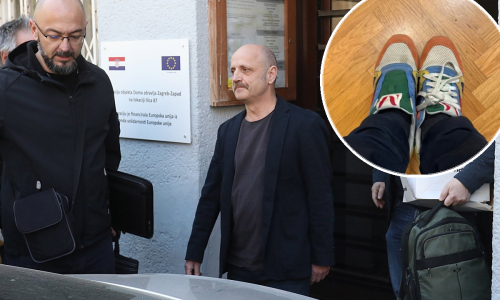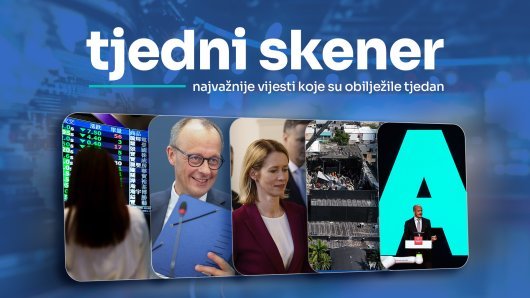The chair of the National Committee overseeing Croatia's EU accession talks, Vesna Pusic, on Thursday submitted to parliament a report on the Committee's work in the first half of this year, saying that it was not unrealistic to expect Croatia to complete its EU entry talks by mid-2011.
"Despite the fact that the estimate at the beginning of the reporting period was that we would complete negotiations by the end of this year or the beginning of the next, that estimate unfortunately no longer holds. The current estimate is that it is not unrealistic to expect the accession talks to be completed by the middle of next year, during Hungary's EU presidency," Pusic said, adding that EU Enlargement Commissioner Stefan Fuele was of the same opinion.
Pusic warned that since deadlines had been moved, it could easily happen that a referendum on Croatia's membership of the EU and the next parliamentary elections coincided.
She said that she discussed this with Fuele, who said that a candidate country was free to do what it wanted and that there were no formal obstacles, but that the EU's recommendation was that the EU entry referendum and parliamentary elections should not be held on the same day.
She underlined the need to start as soon as possible preparations for the election of members of the Judicial Appointment Council, to be carried out by mid-January 2011.
"We should be able to show, as required by Chapter 23 (Judiciary and Fundamental Rights), that we are really enforcing the laws we have adopted," Pusic said, adding that the preparations should start right away.
A state secretary at the Foreign Ministry, Andrej Plenkovic, said that it was realistic that Croatia would complete its EU entry talks by the middle of next year, adding that the EU could only give a recommendation on the date of the EU accession referendum, but that it was up to the candidate country to decide when to hold it.
Speaking on behalf of the Social Democratic Party (SDP), Committee deputy chair Neven Mimica said the negotiating process was in its final stage, underlining the importance of completing reforms and informing citizens as well as possible about the advantages of EU membership so as to remove reasons for concern.
He said that in the reporting period a lot of work had been done regarding the opening of the policy areas Competition Policy and Judiciary and Fundamental Rights, but also warned that with regard to the shipbuilding industry, after the two previous governments led by the Croatian Democratic Union failed to restructure the state-owned shipyards, Croatia had found itself in a situation when it could only look for the least bad solution.
"I'm afraid that there can't be any major changes in relation to what has been agreed so far. What we can do is try, at the end of the negotiating process, to alleviate the negative effects of the decisions made so far, for example those regarding the ban on the signing of new contracts by shipbuilding companies during the process of their restructuring," Mimica said.
Marija Pejcinovic Buric of the Croatian Democratic Union (HDZ) said the fact that Croatia had opened all negotiating areas, of which only five remained to be closed, was a good result. She also welcomed the fact that intensive work was under way on the text of the accession treaty.
She said that efforts should be intensified to provide citizens with information on the EU. Commenting on a recent poll showing that half of supporters of a political party do not look favourably on the EU, Pejcinovic Buric called on political parties to join in the campaign to inform citizens about the EU.
Damir Kajin of the Istrian Democratic Party (IDS) wanted to know if media reports about Slovenia again blocking some of the policy areas in Croatia's EU entry talks were true, adding that if they were, it would be another "hypocritical" attack on Croatia, this time over Ljubljanska Banka.
Boro Grubisic of the regional HDSSB party objected to the National Committee saying in the report that it had not been informed of what had been negotiated in as many as 18 policy areas.
"That means that the National Committee is not familiar with what has been negotiated, so how can then citizens be familiar with it?" he said.





































